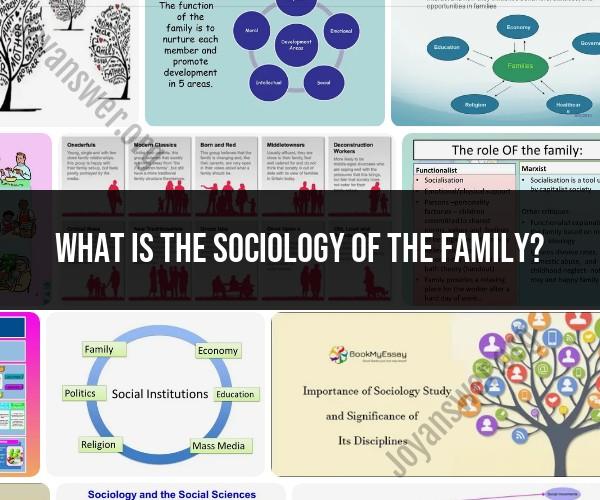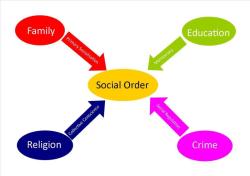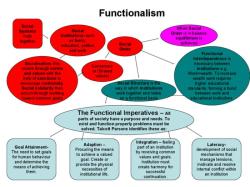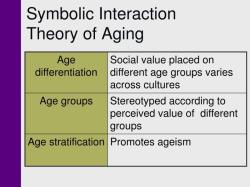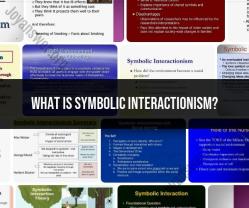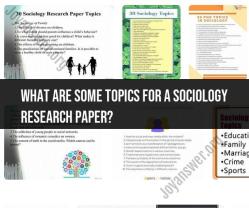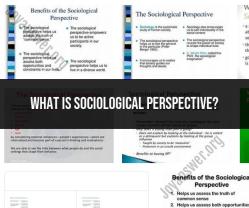What is the sociology of the family?
The sociology of the family is a subfield of sociology that focuses on the study of family structures, relationships, dynamics, and the role of the family in society. It seeks to understand how families are formed, how they function, and how they are influenced by and influence larger social, cultural, economic, and political contexts. The sociology of the family examines a wide range of topics related to families and household units.
Key areas of inquiry within the sociology of the family include:
Family Structures: Analyzing the various forms of family structures, including nuclear families, extended families, blended families, single-parent families, and same-sex families.
Marriage and Partnership: Investigating the institution of marriage, including patterns of marriage, divorce, cohabitation, and factors influencing marital stability and satisfaction.
Parenting and Child-Rearing: Examining the roles and responsibilities of parents, parenting styles, and the impact of parenting practices on child development and well-being.
Gender Roles and Relations: Analyzing how gender roles, expectations, and power dynamics influence family life, including the division of labor within households.
Intergenerational Relationships: Studying the relationships between generations, such as parent-child relationships, grandparent-grandchild relationships, and the transmission of values and traditions.
Family Diversity: Exploring the diversity of family structures, including multicultural families, immigrant families, and families with diverse religious, ethnic, and cultural backgrounds.
Family and Society: Investigating the interactions between families and larger social institutions, such as the economy, education, healthcare, and the legal system.
Family and Social Change: Analyzing how societal changes, such as economic shifts, cultural shifts, and changes in gender roles, impact family dynamics and structures.
Family Policy: Evaluating government policies and social programs related to families, including issues like childcare, parental leave, and family support services.
Family Violence and Abuse: Studying the prevalence and impact of family violence, including domestic violence and child abuse, and examining the societal responses to such issues.
Kinship and Social Networks: Exploring the roles of extended family members and kinship networks in providing social support and resources.
Family in a Global Context: Investigating how globalization and migration patterns affect family structures and relationships, including transnational families.
The sociology of the family is not only concerned with understanding the internal dynamics of families but also with how families are embedded within broader social, cultural, and historical contexts. Researchers in this field use a variety of research methods, including surveys, interviews, ethnographic studies, and quantitative analysis, to examine the complexities of family life and its interactions with society.
The study of the family is essential because families play a central role in shaping individuals' identities, values, and experiences, and they are a key institution in society with significant implications for social and economic well-being.
Sociology of the Family: Exploring Dynamics and Relationships
The sociology of the family is a subfield of sociology that studies the family as a social institution. It explores the formation, maintenance, growth, and dissolution of kinship ties, as well as the relationships between family members and the broader social context.
Some of the key topics in the sociology of the family include:
- Family structure: This includes the different types of families, such as nuclear families, extended families, and single-parent families.
- Family dynamics: This includes the roles and responsibilities of family members, as well as the power dynamics within families.
- Family relationships: This includes the relationships between spouses, parents and children, and siblings.
- Family and society: This includes the impact of social factors such as class, race, and gender on family life.
Family Sociology: Investigating the Social Aspects of Family Life
Family sociologists use a variety of research methods to study the family. These methods include surveys, interviews, and focus groups. They also analyze data from government agencies and other sources.
Some of the findings of family sociologists include:
- Family structure is changing: The traditional nuclear family is becoming less common, and more and more people are living in single-parent families or cohabiting relationships.
- Family dynamics are becoming more complex: Gender roles are becoming more fluid, and parents and children are more likely to share responsibilities.
- Family relationships are becoming more diverse: Families are increasingly multicultural and multigenerational.
- Family life is influenced by social factors: Class, race, and gender all play a role in shaping family life.
Society's Building Block: An In-Depth Look at the Sociology of the Family
The family is one of the most important social institutions in society. It provides us with love, support, and socialization. It also helps to transmit values and traditions from one generation to the next.
The sociology of the family is an important field of study because it helps us to understand the family and its role in society. By understanding the family, we can better understand ourselves and the world around us.
Here are some examples of how the sociology of the family can be used to inform our understanding of the world:
- The sociology of the family can help us to understand the challenges faced by single-parent families.
- The sociology of the family can help us to understand the impact of divorce on children.
- The sociology of the family can help us to understand the role of the family in poverty and inequality.
- The sociology of the family can help us to understand the challenges faced by immigrant families.
The sociology of the family is a complex and fascinating field of study. It is a field that is essential for understanding the family and its role in society.
